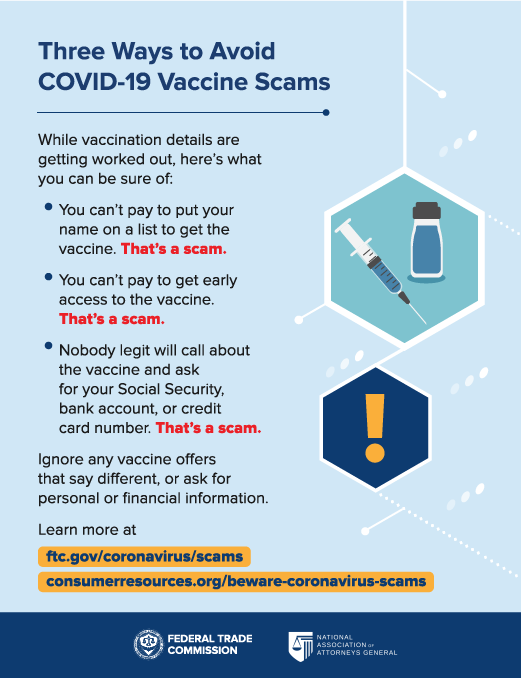Reports about the release of COVID-19 vaccines by the end of the year are promising, but plans for distribution are still being worked out.
Here’s what we know right now: Two vaccine manufacturers (Pfizer/BioNTech and Moderna) have submitted applications for Emergency Use Authorization to the Food and Drug Administration (FDA). The FDA could complete its review of these applications by the third or fourth week of December 2020. Additional vaccine manufacturers are expected to apply for FDA authorization in 2021. The Advisory Committee on Immunization Practices (ACIP), an independent group of experts convened by the Centers for Disease Control and Prevention (CDC), has already recommended that health care workers and residents of long-term care facilities should receive the first available doses. As additional data is available, more vaccines are authorized by the FDA, and vaccine production increases, ACIP will continue to update its recommendations.
Once the FDA authorizes one or more vaccines from pharmaceutical manufacturers, vaccines will be distributed to federal- and state-approved locations. For most people living in the U.S., states and territories will make the final decisions on who will get the vaccines and when. States are also working on their own specific vaccination plans. You may want to check with your state for specific information regarding distribution plans in your state. More information on where and how to get a COVID-19 vaccine will be available once vaccines are authorized and/or being shipped out.
While we wait for a timeline and more information, there’s no doubt scammers will be scheming. Here’s what you need to know to avoid a vaccine-related scam:
- You likely will not need to pay anything out of pocket to get the vaccine during this public health emergency.
- You can’t pay to put your name on a list to get the vaccine.
- You can’t pay to get early access to the vaccine.
- No one from a vaccine distribution site or health care payer, like a private insurance company, will call you asking for your Social Security number or your credit card or bank account information to sign you up to get the vaccine.
- Beware of providers offering other products, treatments, or medicines to prevent the virus. Check with your health care provider before paying for or receiving any COVID-19-related treatment.
If you get a call, text, email — or even someone knocking on your door — claiming they can get you early access to the vaccine, STOP. That’s a scam. Don’t pay for a promise of vaccine access or share personal information. Instead, report it to the FTC at ReportFraud.ftc.gov or file a complaint with your state or territory attorney general through consumerresources.org, the consumer website of the National Association of Attorneys General.
Stay connected to stay informed. Subscribe to consumer alerts from the FTC. When you do, you’ll get updates delivered right to your email inbox. You may also want to check your state or territory attorney general’s website for consumer alerts and other helpful information.

